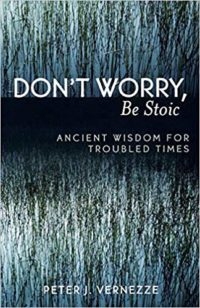It was Friday morning and I was out for a run. It was an eraly spring day, and after the long dead of winter things were just starting to come to life. The sun was shining, a gentle breeze with a hint of warmth was blowing, and buds were beginning to appear on the trees. Zipping along on a trail that looped around a golf course tucked against the side of a mountain, I was in a running zone, completely in accord with surroundings and feeling especially grateful to be alive. It is times such as these, when everything seems right with the world, that I’ve discovered you really need to be on the lookout.
Up ahead I saw an older man with a bushy white beard working on the trail and prespiring quite hard. Next to him was a brown runt of a dog lashed to a tree. Experience has taught me not to startle people by shouting out, “Runner coming.” Instead, I have found it best to make some noise: a cough, a kick at the dirt. Usually this is enough. People get the message and move aside. Following protocol, I made my usual sounds. The dog barked, the old guy looked up, and everything seemed O.K.–until, that is, I tried to pass them. He not only refused to step aside but acutally blocked my path. And then, as if talking to a six-year old, he looked me right in the eye and said, “Do me a favor. Next time you come up to someone working on a trail, announce yourself and walk by.”
My first impulse was to ask if he would do me a favor and stick that shovel, well, somewhere in the immediate vicinity. But, instead, I simply looked at him quizzically and ran on. When I was further down the trail, I congratulated myself on not blowing up at him. But I still could not shake the feeling of righteious indignation. I had indeed announced myself and he had seen me. But since I hadn’t played the game by his rules, he was going to make me pay, even though what I did was perfectly good trail etiquette. The son of a bitch.
I rant a bit longer, but my mind kept going back to the jerk on the rail. I knew my run would be ruined unless I could let this thing go. How we handle a slight, perceived insult, or flippant remark, says a good deal about who we are. Marcus Aurelius gives a list of guidelines (dicussed below) on how to behave when one feels offended. It is somehow reassuring to know that this sort of thing was a problem for a Roman emperor!
First, he said that we ought to recognize the natural kinship that exists between ourselves and all other humans. This may go some way towards mitigating against anger, since it is harder to be mad at a relative than at a stranger. Second, he suggested that we kkep in mind that people’s chargers predispose them to act the way they do: “Consider what kind of men they are at table, in bed, and so fort: and particularly under what compulsions in respect of opinions they are; and as to their acts, consider with what pride they do that they do.” If we can acknowledge that individuals are victims of a chain of circumstances going back to their childhood and even beyond, that, given who they are, they can’t help what tey do, our rationale for feeling angry will dissipate. Third, Aurelius tells us to keep in mind that, “A man must learn a great deal to enable him to pass a correct judgement on another’s actions.” Since we simply do not know what circumstances or pressures ar weighing upon the individual who has offended us, it might not be out of line to give our fellow human the benefit of the doubt. Moreover, he advises us to be cognizant of the fact that it is not a given deed or action that bothers us, but rather our reaction to it: “Dismiss the judgment about an act as if it were something grievous, and the anager is gone.” Finally, if all else fails, Aurelius instructs us to remember “that man’s life lasts only a moment, and after a short time we are all laid out dead.”
The goal, after all, is to maintain your mental equlibrium. Epictetus drives this point home when he says that we would not turn over our body to just any person we happen to meet. Should we not be ashamed to hand over something more precious, our peace of mind, to someone who stumbles in our way?

